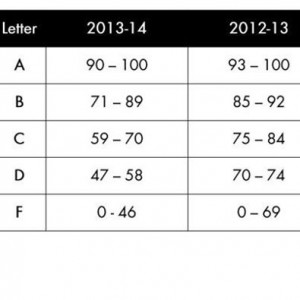A group of 56 Tennessee School Superintendents sent a letter to Governor Haslam this week encouraging him to ask his Education Commissioner, Kevin Huffman, to be more inclusive and collaborative in his approach on education reform. The letter stirred up a bit of controversy and no doubt created headaches for Huffman last week and into this one.
Now, one of those who signed the letter, Williamson County’s Mike Looney, is explaining why he did.
Looney notes that he is a supporter of common sense education reform. He indicates that his concern is with both the speed at which reform has been implemented and the lack of collaboration.
Here are a couple of important points made in Looney’s letter:
Our state secured and has spent $500,000,000 in Race to the Top grant funds in the last three years. At the same time, Tennessee has realized small incremental improvements in student results. One might argue that the dizzying rate of education reforms in Tennessee is the result of the huge influx of federal dollars rather than a careful, measured understanding of the needs of students. Others believe these pockets of improvement are a result of implementing The Tennessee Diploma project, which preceded Race to the Top initiatives. In reality, as most any researcher would concede, it is difficult to know which reforms have been beneficial because we have manipulated too many variables.
Perhaps most discouraging is the fact that 50% of the $500,000,000 was kept by the Tennessee Department of Education. I wonder for what purpose and to whose benefit? The district I serve received less than $400,000 which did not come close to covering the cost and burden of implementing these reforms.
This is likely why organizations like Professional Educators of Tennessee are asking for an audit of Race to the Top expenditures.
Looney continues:
Based on the number and pace of reforms, their strategy seems to be to throw as many darts as possible at the problem in hopes that something, anything, will hit the bull’s eye and stick. Meanwhile, many teachers and administrators have encouraged a more deliberate, reflective and inclusive approach, which I believe will yield long term sustainable results. In short, Tennessee students, educators and families are not well served by rapid-fire reform efforts that ignore the importance of collaboration and thoughtful implementation.
This is a thoughtful letter raising very legitimate concerns that should certainly be addressed by the Governor and Commissioner Huffman. If Dr. Looney’s urging won’t encourage their response, perhaps some legislators will raise these very same questions.
Tennesseans deserve excellent education for all children. They also need to know the reform strategy being pursued is being implemented thoughtfully and is efficiently using the state’s limited funds.
For more on education policy and politics in Tennessee, follow us @TNEdReport
